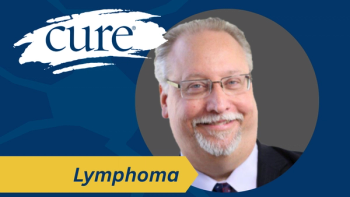
Progression in R/R Follicular B-Cell Non-Hodgkin Lymphoma
Ajay Gopal, MD: One characteristic regarding follicular lymphoma is, even though most will have a normal lifespan, it's a very difficult lymphoma to eradicate. It's really more of a chronic problem. It's to some degree one might even say a nuisance lymphoma that can cause symptoms, that needs to be dealt with over time, even if it's not typically life-threatening in most folks. When we get the initial treatment, the expectation is, unfortunately, that in most people, it's probably going to come back at some point.
And if it does recur, we ask the same questions. Is it bothering someone? Is there a reason to do something about it because really, there are no data to say that if it's not causing problems, that there is reason to treat. So we really ask those same questions. Is there a reason to do something about it? And then we look at factors such as, how bad is it causing problems or creating symptoms? Is it affecting organ functions? How long was it since the initial remission?
Did you get a really long remission after your first therapy or was it relatively short? And really, it's not rocket science that if you had a shorter remission, that's usually more problematic than if you had a longer remission. And then we also look at what was the first therapy you had. If you had a short remission after a really strong therapy, that’s something we take a lot more seriously than if you had a longer remission after really gentle therapy.
That would be the best-case scenario. And we put all those factors together and, of course, have the patient be a part of the decision-making to discuss the approaches, discuss clinical trial approaches. I obviously have a certain perspective here in an academic medical center, but these are complex decisions that don't need to be rushed typically. I often encourage folks to seek out expert opinions in treatment of lymphomas to help in the decision-making, even if the experts may not be the ones actually treating you, but help to guide treatment.
One question is, do we talk about what happens at relapse at the time of first diagnosis? This field is rapidly evolving. There are therapies that are being approved and new options and new data coming out almost on a month-by-month basis, or certainly, each year there are new approvals in this area. So I speak in general terms about overall strategy. I talk to patients about how this is really a life strategy.
How do we get patients to that finish line, whatever that might be, in terms of a life well lived with the least amount of side effects, the least amount of hassle, and the maximum quality of life and longevity? So I speak in general terms usually at the beginning and say that if that time comes, or when that time comes that we need to talk about relapsed disease, we'll talk about more specifics based on the state of the art at that time.
Transcript Edited for Clarity




